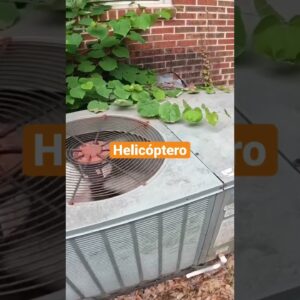I Can Hear This Air Conditioner When I’m Pulled Into the Driveway
Air conditioning units are a common fixture in many homes, providing comfort during the sweltering summer months. However, these seemingly innocuous appliances can also be a source of noise pollution, drawing attention not just from inside the house, but even from outside. In this article, we’ll explore the implications of having a noisy air conditioning unit and ways to mitigate the nuisance that can sometimes come with it.
Understanding Air Conditioner Noise
Almost every air conditioning system will produce some level of noise during its operation. Understanding why these noises occur can help homeowners decide whether it’s an acceptable level of sound or something that needs to be addressed.
Types of Sounds Produced
The sounds emitted by an air conditioning unit can typically be classified into several categories:
- Hums and Buzzes: These sounds are generated by the compressor and are often normal. They indicate that the unit is operating as expected, but if they become louder or more persistent, it may be time for maintenance.
- Rattles and Clanks: These irregular noises can signal loose components or debris caught in the fan. This is not normal and warrants a thorough inspection.
- Whistles or High-Pitched Sounds: High-frequency noises can often be tied to airflow issues, such as blockages in ducts or vents, and require immediate attention.
Common Reasons for Noisy Air Conditioners
If you’re hearing your air conditioner from the driveway, it could be one of several reasons. Understanding these can help you diagnose the issue more effectively.
Age of the Unit
Older air conditioning systems tend to be noisier than newer models. Components wear out over time, and the overall efficiency of the system can diminish. This might lead to increased operational noise.
Installation Issues
A poorly installed air conditioning unit can lead to noise problems. If the unit is not leveled or is sitting on an unstable base, vibration can occur, causing more noise. Ensuring that the unit is installed correctly can help mitigate this issue.
Maintenance Neglect
Like all machines, air conditioners require regular maintenance to run smoothly. Clogged filters, dirty coils, and refrigerant leaks can contribute to louder-than-normal operation. Regular maintenance can help keep these issues at bay.
External Conditions
Sometimes the surrounding environment can contribute to noise issues. Trees, bushes, or other structures could block airflow, causing the unit to work harder and thus produce more noise. Ensuring that your air conditioner is clear from obstructions can help minimize sound levels.
Impact of Noisy Air Conditioners
So why does it matter if you can hear your air conditioner from the driveway? Here are a few points to consider:
Quality of Life
Noisy air conditioners can be a significant disturbance, affecting your overall quality of life. They may prevent you from enjoying outdoor spaces, focusing on work, or simply relaxing at home.
Neighborhood Relations
If the noise is loud enough, it can also affect your relationship with neighbors. Noise complaints can strain relationships and diminish the neighborhood atmosphere.
Energy Efficiency
A loud air conditioner may not just be a nuisance; it could also indicate inefficiency. An inefficient unit will consume more energy, leading to increased utility bills and a larger carbon footprint.
How to Address Air Conditioner Noise
If you discover that your air conditioner is indeed too noisy, don’t despair—there are several solutions available:
Regular Maintenance
Schedule regular check-ups with HVAC professionals to ensure your system is running smoothly. They will check for common problems that can cause excessive noise and help you keep your unit in top shape.
Upgrade Your Unit
If your air conditioner is dated and contributes to noise pollution, it may be time for an upgrade. Many new models are designed to operate quietly while still providing excellent cooling efficiency.
Sound Barriers
Consider installing sound barriers around your outdoor unit. These barriers can absorb sound and help mitigate the noise reaching your driveway and living spaces.
Vibration Pads
Installing vibration pads under the air conditioning unit can reduce the amount of noise generated by vibrations, making it less audibly disruptive.
Conclusion
In conclusion, while air conditioning units are an essential component of maintaining comfort in our homes, they can also become a source of unwanted noise. If you find yourself hearing your air conditioner as you pull into the driveway, it may be time to investigate the issue, whether through regular maintenance, an upgrade, or additional soundproofing solutions. By addressing the noise concerns proactively, you can ensure a more peaceful home environment and a better quality of life.

